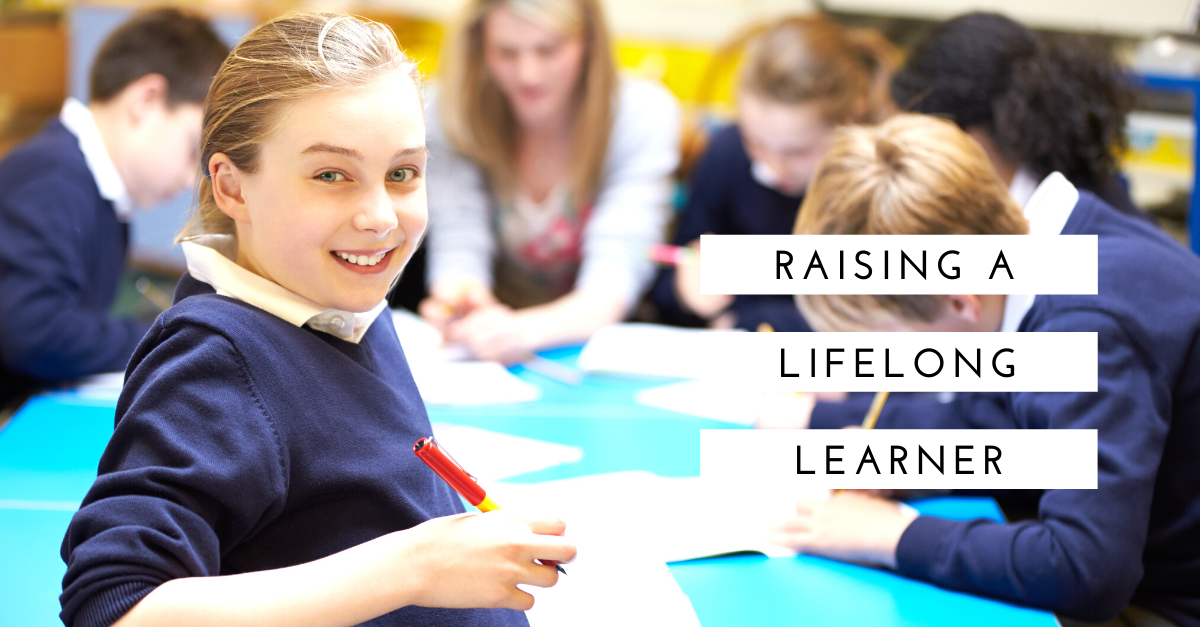I love learning. I love knowing and discovering new things.
Lifelong learners is a term to describe someone who desires to be a forever student. Always exploring, thinking, creating, wondering, discovering, questioning – maybe about a particular subject or generally. All parent wants their child to learn, but I wonder: what’s the value of being a lifelong learner?
Research shows that lifelong learning has a vast impact on brain health, building confidence, and furthers children’s socialization skills. It also provides greater career opportunities and sharpens the ability to communicate.
Raising a child who is a lifelong learner is not hard. But it does take time and patience. When we give our children the gift of loving to learn we instill an insatiable desire to understand their evolving world.
Here are some ways to I’ve begun cultivating the lifelong learner in my children.
DEVELOP CONVERSATIONS.
Young kids love talking, especially about things they’re interested in. As they get older, it gets harder. So start early. Ask open-ended questions. Think about the difference between “how was school?” to “what one thing was awesome at school today?”. It may seem simple but don’t talk down to them. Use the real words for things. If they don’t understand help them track down the answer.
Igniting conversations with your children develops a robust vocabulary and teaches them how to converse with others. This is an essential skill in any industry or field, or just to grow deeper relationships with others.
ASK QUESTIONS
Nothing gets us thinking more like asking open-ended questions. Open-ended questions have no definitive answer so kids are free to explore without worrying about getting the answer wrong.
When my kids express their love for something, I ask them why they love it, what they think about it, what if it were different – those types of questions to get their brains churning.
When we read a book, watch a video, or attend an event, I ask them their opinion and keep the conversation going as much as I can.
CULTIVATE CURIOSITY
Children are naturally curious. They learn by touch, smell, sight, taste, hearing, and movement. And they want to know all about it. Why? How? What? Where? Who?
However, we often are following own agenda and don’t have time for children to stop and ask questions or examine the bark of the tree. As a curious person though, I wanted to find out just how long it would take to allow room for a little curiosity in our family schedule.
Based on several studies, the average question a child asks may take up to 60 seconds. Surely we can spare a minute, or maybe even two minutes, to boost our children’s curiosity.
READ, READ, READ
It’s no secret that early literacy sets children up for reading success. But aside from that, exposing our children to books about cultures and people that are different, while helping them see beyond themselves and their situation, can further grow a lifelong learner and grow empathetic children.
Not only does reading early engage children with language, research shows it also develops social-emotional skills.
LET YOUR CHILDREN SEE YOU FAIL
A huge part of being a lifelong learner is learning to fail because it will happen. We are their front line for giving them a healthy attitude towards that failure.
Our response to our own failures is paramount to our children. When they see us portray an attitude of frustration and become stuck, they’ll think that failure is the end and will resist trying again.
BE A LIFELONG LEARNER YOURSELF
I love telling my kids fun things I learn.
However, I don’t wish to simply fill their heads with knowledge. I want them to see that beauty and wonder are the effects of discovering something new.
ENCOURAGE INDEPENDENCE
I’ve found when I’m hovering over my children, watching every step they take, telling them to be careful, they lose an opportunity to learn about natural consequences.
Learning to problem solve by themselves is a valuable skill for a lifelong learner. Often when we are learning about something new, we run into conflict and we need to use our problem-solving skills to help us understand further.

